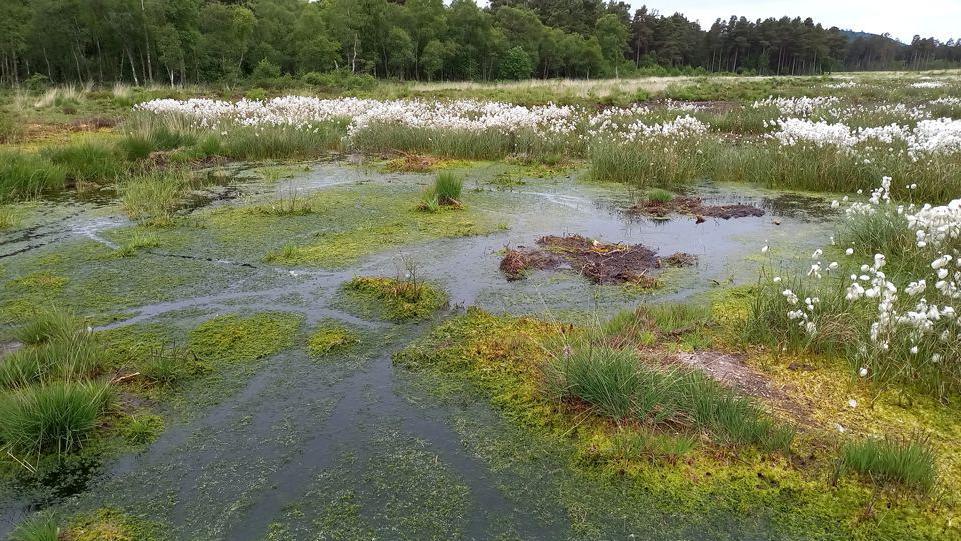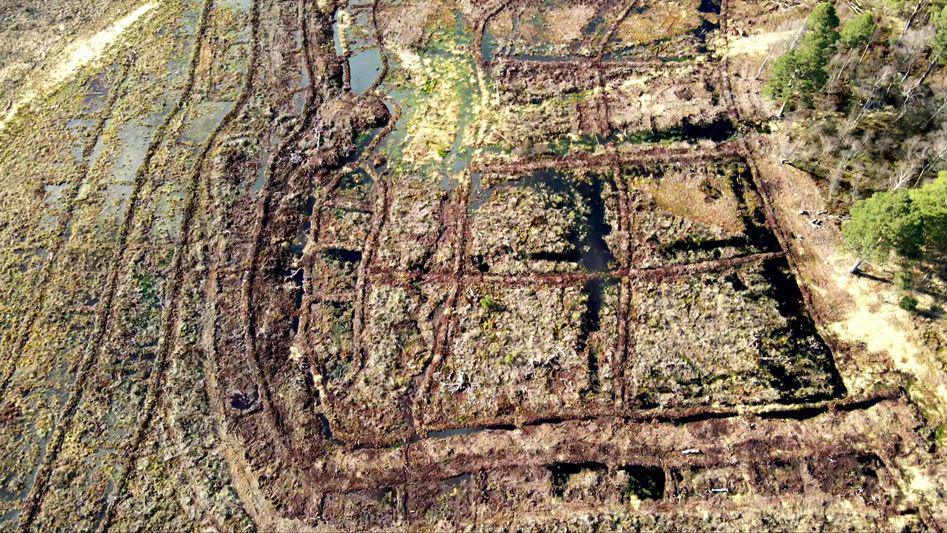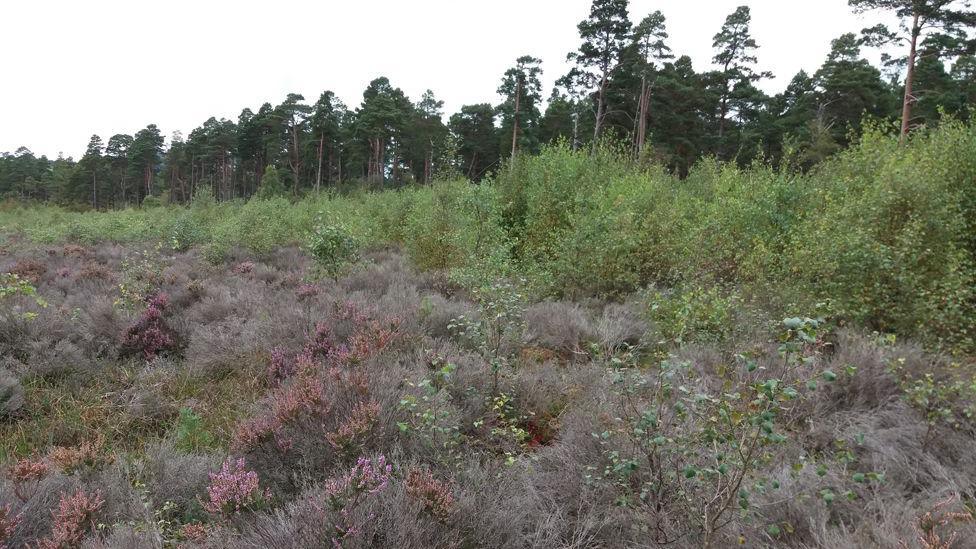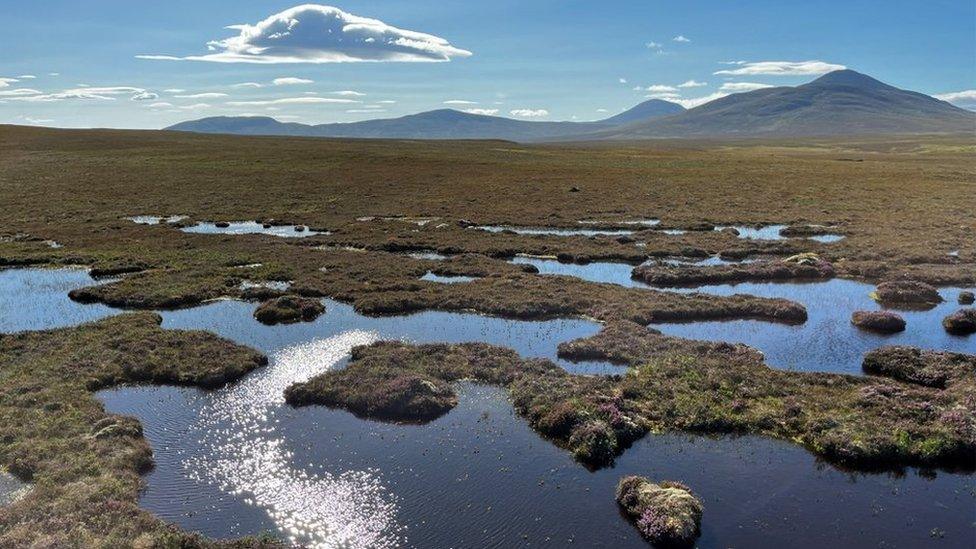Ancient peat bog makes 'remarkable' recovery

Restoration work first started in the area more than 20 years ago
- Published
A major peatland restoration project in southern Scotland has been completed after more than 20 years.
NatureScot first started work on the 90 hectares (220 acres) site at its Kirkconnell Flow reserve in 2000.
The area was badly damaged in the Victoria era through peat cutting and then the installation of drains and tree planting.
Reserve manager Suzanne McIntyre said the recovery of the bog had been "remarkable".

Water retention has been improved which should allow the bog to thrive
NatureScot received funding from Peatland Action for the restoration work which started by removing trees and blocking surface drains.
That saw some improvement but there was still a risk of the bog continuing to dry out and suffering further damage and loss.
A series of watertight "bunds" have now been formed which help retain water and allow sphagnum mosses to grow.
Work was completed in early December and NatureScot said the signs of recovery were visible already.

NatureScot said that areas such as Kirkconnell Flow could be vital in tackling the climate and biodiversity crises
"The restoration work will still take a few years to fully embed, during which time the surface of the bog will remain delicate and in need of careful protection," Ms McIntyre said.
"However, all the recovery signs so far indicate that the bog at Kirkconnell Flow will be as we had hoped - sufficiently resilient to withstand the expected changes to the climate, and able to lay down peat and lock in carbon for years to come."
Head of Peatland Operations Barry Dunne said peat bogs had a "vital part" to play in tackling the climate and biodiversity crises.
He said Peatland Action looked forward to working with other landowners in future to achieve "even more".
Follow the BBC for the South of Scotland on X, external. Listen to news for Dumfries and Galloway on BBC Sounds.
Get in touch
What stories would you like BBC News to cover from the south of Scotland?
Related topics
- Published7 September 2023
